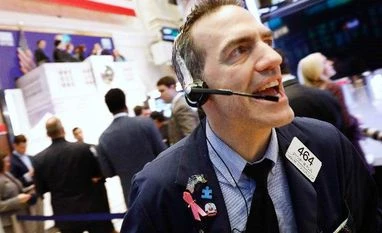Wall Street watchdogs handpicked by President Donald Trump eased the Volcker Rule’s controversial ban on banks making speculative investments, wrapping up a top deregulatory priority that’s long been sought by the financial industry.
The changes, approved Tuesday by the Office of the Comptroller of the Currency and Federal Deposit Insurance Corp., seek to provide lenders a much clearer picture of which trades are prohibited, giving them confidence to engage in transactions without fear of violating Volcker.
But one Democratic FDIC board member warned the rollback could again endanger the financial system by allowing lenders to recklessly trade hundreds of billions of assets like they did before the 2008 financial crisis.
The Volcker rewrite marks a victory for Wall Street, especially Goldman Sachs Group Inc., which has lobbied aggressively to weaken the rule for years. But the changes leave in place the rule’s prohibition on proprietary trading—the practice of banks making market bets with their own money. And lenders still face restrictions on investing in private equity and hedge funds.
“One of the post-crisis reforms that has been most challenging to implement for regulators and industry is the Volcker Rule,” Jelena McWilliams, who leads the FDIC, said at a Tuesday public meeting. “The amendments will provide clarity, certainty and objectivity.”
Huge losses
A response to the 2008 meltdown, Volcker was meant to address concerns that some bank trading desks had behaved like hedge funds, using their firms’ balance sheets to finance risky wagers. The six biggest lenders racked up almost $16 billion losses from their prop-trading units over five quarters during the crisis, leading in part to the huge taxpayer bailouts that stoked public anger as consumers suffered through a recession.
Former Federal Reserve Chairman Paul Volcker, the rule’s key advocate, said such trading could sink banks and threaten the broader economy. It was included in the 2010 Dodd-Frank Act, with regulators putting it in place three years later.
Almost since the ink was dry, banks have complained that Volcker was exceedingly complex, making the rule difficult to comply with. So regulators picked by Trump arrived at their agencies with a strong interest in simplifying the rule. The revamp, known as Volcker 2.0, is part of a steady effort to soften regulations during his administration. While watchdogs haven’t ripped up the post-crisis rule book, critics argue that taken together, the changes will insert renewed risk into the financial system.
What authorities came up with on Volcker relies on what’s known as the market-risk prong to determine which transactions are prohibited for banks with more than $1 billion of trading activity.
That standard is something large banks already use and understand, so theoretically, it will be easier for them to determine in real time whether a trade is banned. Under the rule, chief executive officers of banks with more than $20 billion in trading activity will be required to attest to their firms’ compliance. The changes take effect January 1, 2020, but banks will have another year to comply.
Dimon’s quip
In one of the biggest changes, banks will no longer be assumed to be engaging in banned trades when they conduct short-term transactions. The so-called rebuttable presumption was one of Wall Street’s most-hated aspects of the original Volcker Rule with JPMorgan Chase & Co. CEO Jamie Dimon once famously quipping that each trader would need a psychologist and a lawyer by his side to comply.
In another assist to banks, regulators provide more clarity on market making -- the permitted practice under Volcker of engaging in trades on behalf of clients. Specifically, watchdogs gave lenders a clear limit for assets held in their market-making portfolios that will allow firms to get right up to the line without fear of violating Volcker.
FDIC board member Martin Gruenberg, a Democrat, blasted the changes, saying Volcker has been defanged because he believes the proprietary trading restrictions will no longer apply to many types of financial assets that had been covered.
“The Volcker Rule will no longer impose a meaningful constraint on speculative, proprietary trading by banks and bank holding companies benefiting from the public safety net,” said Gruenberg, who voted against the revamp.
While the changes will be welcomed by banks, the industry has evolved dramatically in recent years, casting doubt on how far firms might try to return to the pre-crisis trading heydays. Even Goldman Sachs, burdened by dozens of new rules, has embraced commercial banking. In a sign of how much has changed, Apple Inc. announced Tuesday that is was partnering with Goldman to launch a credit card.
Regulators also provided some flexibility on restrictions on investing in private equity and hedge funds. Banks will now have more freedom to do so on behalf of clients.
The changes to the five-agency rule also have to be approved by the Fed, Securities and Exchange Commission and Commodity Futures Trading Commission.
With the bulk of Volcker revisions done, there are a number of other Wall Street rules awaiting attention -- many of them being handled by the Fed. They include significant shifts in bank capital rules and leverage limits, plus fundamental changes to the Fed’s annual stress tests.
Unlock 30+ premium stories daily hand-picked by our editors, across devices on browser and app.
Pick your 5 favourite companies, get a daily email with all news updates on them.
Full access to our intuitive epaper - clip, save, share articles from any device; newspaper archives from 2006.
Preferential invites to Business Standard events.
Curated newsletters on markets, personal finance, policy & politics, start-ups, technology, and more.
)